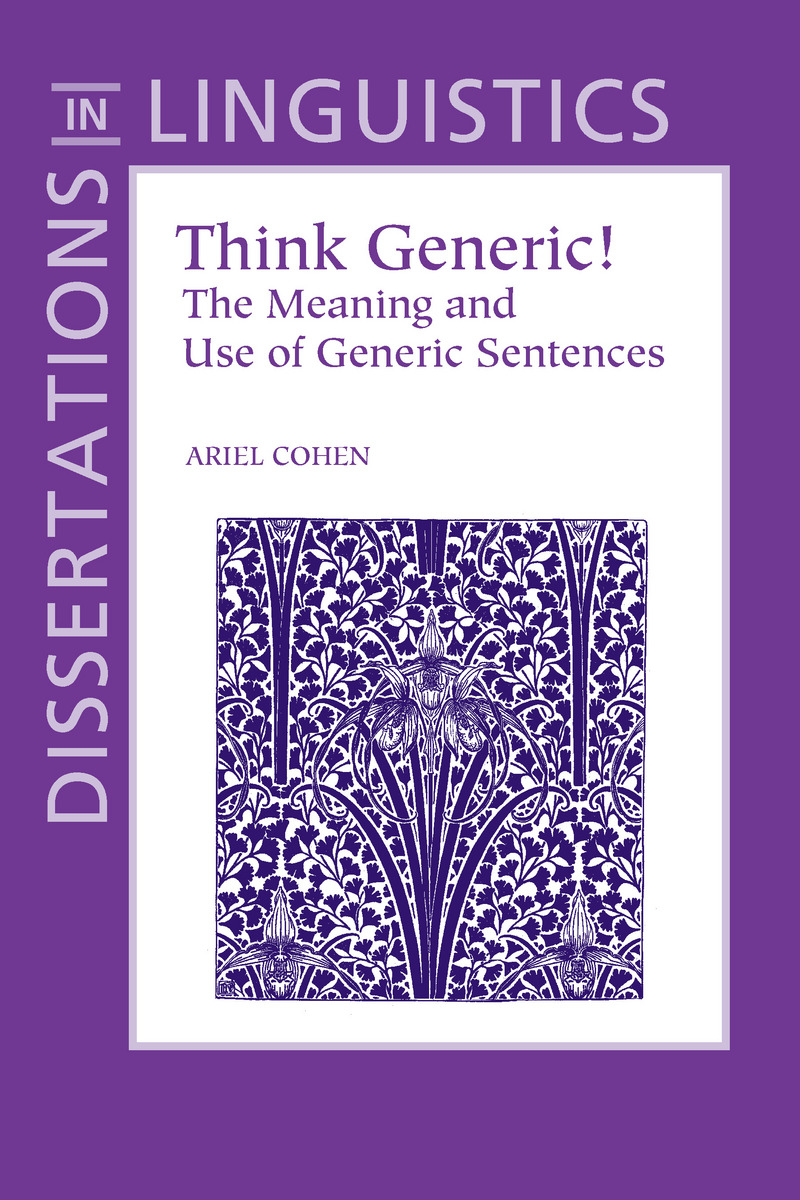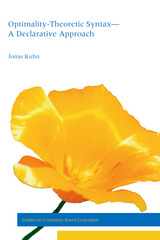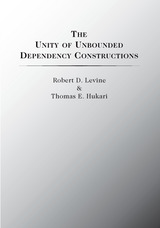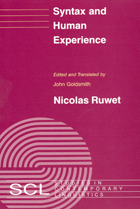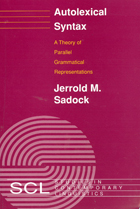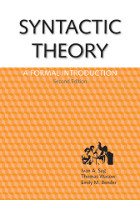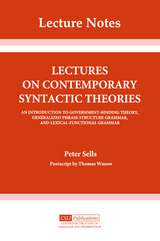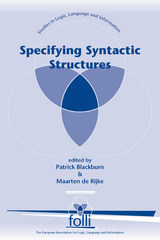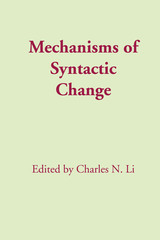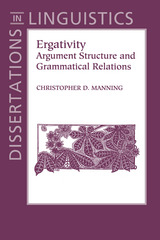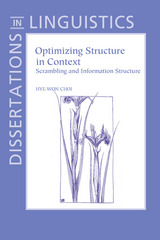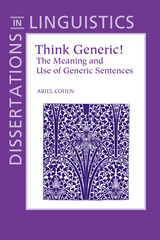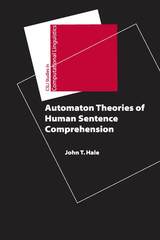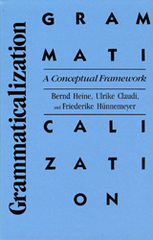Think Generic!: The Meaning and Use of Generic Sentences
CSLI, 1999
eISBN: 978-1-57586-982-7 | Cloth: 978-1-57586-207-1 | Paper: 978-1-57586-208-8
Library of Congress Classification P295.C59 1999
Dewey Decimal Classification 415
eISBN: 978-1-57586-982-7 | Cloth: 978-1-57586-207-1 | Paper: 978-1-57586-208-8
Library of Congress Classification P295.C59 1999
Dewey Decimal Classification 415
ABOUT THIS BOOK | TOC
ABOUT THIS BOOK
Our knowledge about the world is often expressed by generic sentences, yet their meanings are far from clear. This book provides answers to central problems concerning generics: what do they mean? Which factors affect their interpretation? How can one reason with generics? Cohen proposes that the meanings of generics are probability judgments, and shows how this view accounts for many of their puzzling properties, including lawlikeness. Generics are evaluated with respect to alternatives. Cohen argues that alternatives are induced by the kind as well as by the predicated property, and thus provides a uniform account of the varied interpretations of generics. He studies the formal properties of alternatives and provides a compositional account of their derivation by focus and presupposition. Cohen uses his semantics of generics to provide a formal characterization of adequate default reasoning, and proves some desirable results of this formalism.
See other books on: Grammar & Punctuation | Language and logic | Meaning | Semantics | Use
See other titles from CSLI
